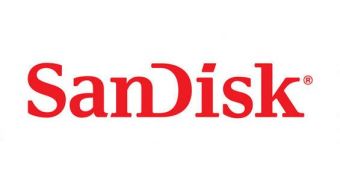Since devices running Windows 8 are going to come out a lot this year, SanDisk decided it would secure its future by tying it to theirs, so it set about forming as many alliances as it could.
The company has issued a press release in which it talks about its iNAND Extreme memory and how it has been adopted by Intel, Qualcomm and Texas Instruments, among others.
As the company's best eMMC (embedded multi-media card), iNAND Extreme has a read speed of up to 80 MB/s and a write speed of 50MB/s.
System responsiveness and multitasking performance are the two main aspects of the devices that the memory is expected to boost.
“Qualcomm selected SanDisk’s iNAND Extreme technology for some of its Snapdragon S4-based reference design platforms running Windows 8 because Qualcomm wants to offer a best-in-class mobile user experience, including a high quality visual experience and high processing performance,” said Raj Talluri, vice president of product management, Qualcomm.
SanDisk's iNAND Extreme is currently sampling and has capacities of 16 to 64 GB.
Availability is scheduled for the second quarter, but with Windows 8 devices not expected to appear before fall, the flash probably won't take off until then either.
Nevertheless, that didn't stop the chip maker from going to MWC 2011 and showing it off.
“SanDisk is known for its deep technical expertise and has strong relationships with all major mobile handset and tablet manufacturers, mobile chipset vendors, operating system developers and standardization bodies,” said Dan Inbar, SanDisk senior vice president and general manager, OEM.
“Because of the effort we make to continually drive innovation and foster stronger relationships with industry partners, we’re well positioned to extend our status as a leading provider of storage solutions to Windows 8-based systems.”
Windows 8 will be used by many PCs, tablets, smartphones and other consumer electronics devices, even ARM-based ones.

 14 DAY TRIAL //
14 DAY TRIAL //